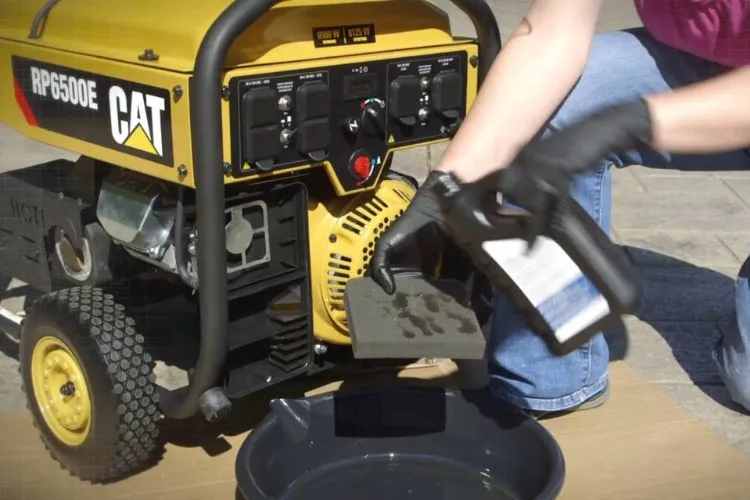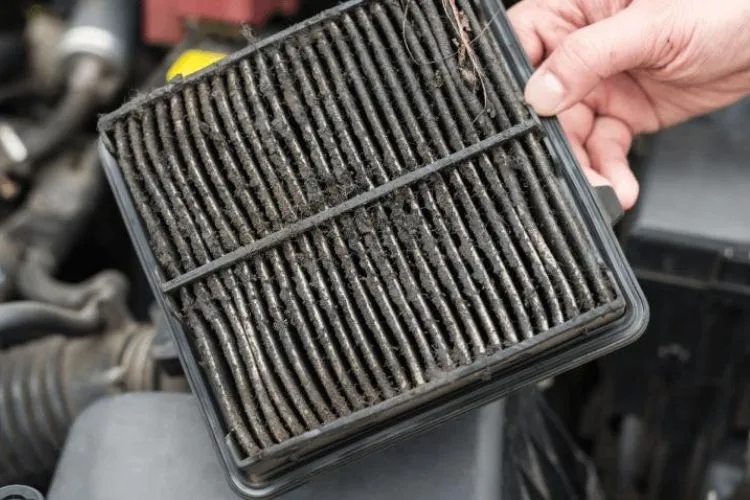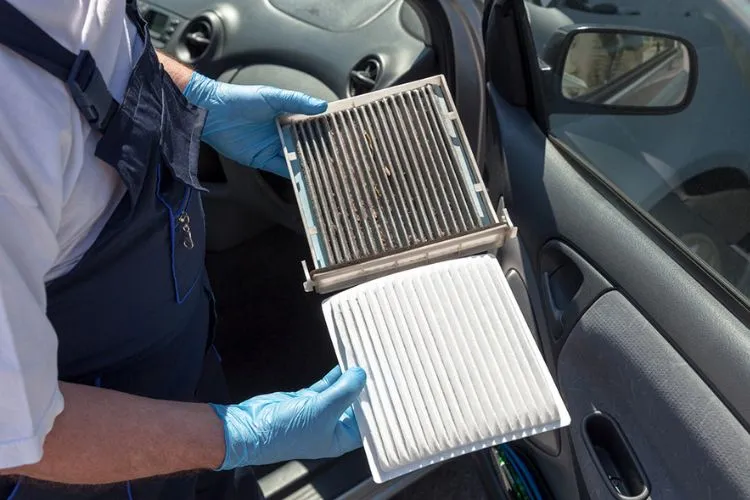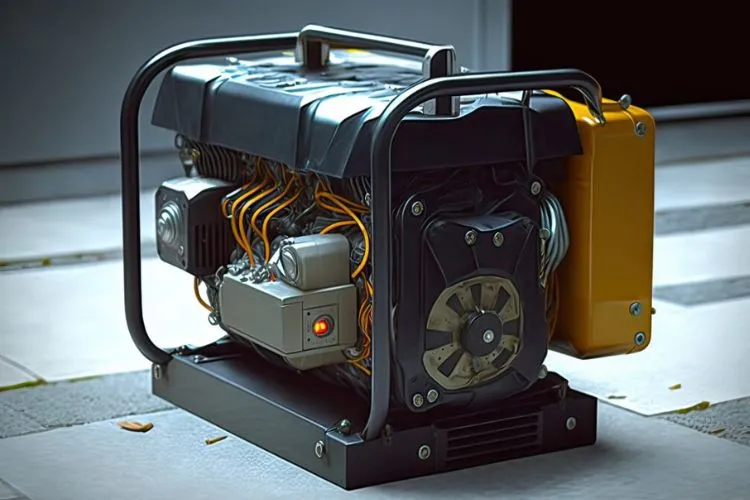Ensuring the longevity and efficiency of your generator involves regular maintenance, and a key aspect of that is caring for the air filter.
An air filter’s primary job is to prevent dust, dirt, and other pollutants from entering the engine’s combustion chamber.
A clogged or dirty air filter can impede air flow, resulting in reduced performance, increased fuel consumption, and potentially costly engine damage.
In this article, we’ll delve into the specifics of how to clean generator air filter while recognizing when maintenance is due, and adhering to a cleaning schedule.

Importance of Cleaning the Air Filter
The air filter is a significant component of your generator. It facilitates the engine’s access to clean air, which is crucial for efficient combustion and power generation.
When a filter is saturated with debris, the generator’s engine struggles to perform, which could lead to various problems such as engine sputtering, starting difficulties, and erratic operation.
Types of Generator Air Filters
Generators typically have one of three types of air filters: paper, foam, or dual-element. Understanding the type of air filter your generator has is the first step towards proper maintenance.
Paper Air Filters
These filters are made of pleated paper and are disposable. They cannot be washed and must be replaced when dirty.
Foam Air Filters
Made from polyurethane foam, these filters can be washed, re-oiled, and reused, making them a cost-effective option.
Dual-Element Air Filters
Combining both a paper and a foam element, these filters provide superior filtration and require both elements to be maintained.
Indications Your Air Filter Needs Cleaning or Replacement
Monitor your generator for signs of a dirty air filter, such as reduced power output, difficulty in starting, frequent stalling, or an increase in fuel consumption.
Additionally, if the filter appears visibly dirty or clogged when inspected, it likely needs attention.

Tools and Materials for Cleaning Air Filters
Before starting the cleaning process, gather the following:
- Soft brush or compressed air (for paper filters)
- Mild detergent
- Warm water
- Clean container
- Air filter oil (for foam filters)
- Replacement air filter (if needed)
How To Clean Generator Air Filter?
Always consult your generator’s manual for specific instructions. Turn off and unplug the generator before beginning maintenance.
Removing the Filter
Identify the air filter housing on your generator and remove the cover to access the filter. Handle it gently to avoid causing damage.
Cleaning a Paper Air Filter
Gently tap the filter to dislodge loose dirt. If it remains dirty, it should be replaced with a new one.
Cleaning a Foam Air Filter
Submerge the foam filter in a solution of mild detergent and warm water. Squeeze out the dirt and repeat until clean.
Rinse thoroughly and allow to dry completely. Once dry, evenly distribute a manufacturer-recommended air filter oil over the foam.
Cleaning a Dual Element Air Filter
Clean the foam element as described above, and lightly tap the paper element to remove loose dirt. Do not wash the paper element.
Inspection After Cleaning
With the filter clean and dry, inspect it for tears, holes, or other damage. If any damage is found, replace the filter.

Reinstallation of Air Filter
Carefully place the air filter back into the housing, ensuring it fits properly without crimping or bending. Replace the housing cover without overtightening.
Maintenance Pro Tips
Maintain a regular schedule for inspection and cleaning to improve the efficiency and lifespan of your generator. Always use the appropriate oils and cleaning solutions, as per the manufacturer’s recommendations.
Scheduled Maintenance
A good rule of thumb is to inspect the air filter after every use and perform a detailed cleaning based on the frequency of use and operating conditions.
Air Filter Life Expectancy
The lifespan of an air filter is influenced by several factors, paramount among them being the environment in which the generator operates, the type of air filter used, and the frequency of generator use.
Filters in generators that are often used in dusty or polluted environments will inevitably have a shorter lifespan due to increased debris accumulation.
Furthermore, the material of the air filter—whether foam, paper, or a dual-element design—also dictates its durability and maintenance needs.
Foam filters, when properly cleaned and oiled, can last longer than paper filters, which must be replaced once they’re dirty since they cannot be effectively cleaned.

Deciding when to replace an air filter over cleaning it is crucial for maintaining engine efficiency and longevity.
It’s time to opt for a replacement instead of cleaning when the air filter is visibly damaged, such as having tears or holes, or when cleaning no longer restores its efficiency.
Additionally, even if the filter doesn’t look excessively dirty or damaged, adhering to the manufacturer’s recommended replacement schedule ensures your generator remains in top running condition, as air filters can degrade and lose efficiency over time even in the absence of visible signs of wear.
Frequently Asked Questions (FAQs)
Can Compressed Air Be Used for Cleaning Air Filters?
For a paper filter, use compressed air with caution to avoid damage. For foam filters, avoid using compressed air as it can cause tears.
How Often Should I Clean My Generator Air Filter?
Inspect it after every use, and clean it at least once per usage season or more frequently in dusty conditions.
Should Air Filters Be Replaced Periodically Even If They Look Clean?
Yes, air filters degrade over time. Follow the manufacturer’s replacement timetable.
Can I Operate My Generator Without an Air Filter Temporarily?
No. This can allow debris to enter the engine, causing significant damage.
What Signs Indicate that an Air Filter Needs Replacement Rather Than Cleaning?
Replace the filter if it displays visible damage or if cleaning does not restore its efficiency.
Conclusion:
Regular air filter maintenance is essential for the performance and longevity of your generator.
By following this detailed guide, you can keep your generator operating at peak efficiency while preventing unnecessary wear and engine damage.
Through proper cleaning techniques, timely inspections, and adherence to a maintenance schedule, you not only ensure the health of your generator but also save on potential repair costs.
Always keep a spare air filter on hand to facilitate immediate replacement when required, and remember, preventive maintenance is key to reliable generator operation.
